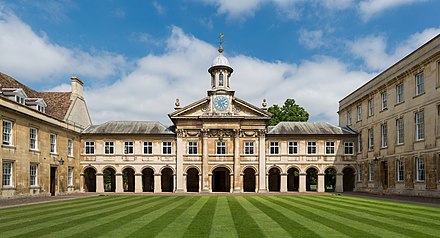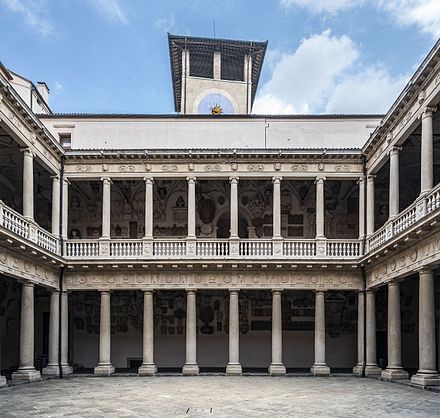Education has always played a pivotal role in the development of civilizations throughout history. In this article, we embark on a fascinating journey to explore the oldest universities in the world, which have been centers of knowledge, scholarship, and intellectual pursuit for centuries. From the remarkable Al-Azhar University to the prestigious University of Coimbra, each institution has a rich history and has contributed significantly to the advancement of education.
1. Al-Azhar University, 970
Established in 970 in Cairo, Egypt, Al-Azhar University holds the distinction of being one of the oldest continuously operating universities in the world. Initially, it served as a center for Islamic religious education, promoting the study of Islamic law, theology, and Arabic literature. Over the centuries, Al-Azhar has grown into a renowned institution, fostering academic excellence and becoming a global symbol of Islamic learning.
2. University of Bologna, 1088
Located in the city of Bologna, Italy, the University of Bologna holds the title of the oldest university in Europe. Founded in 1088, it emerged as a vibrant hub of intellectual activity during the medieval period. The university introduced the concept of academic degrees, including bachelor's, master's, and doctorate, laying the foundation for modern higher education systems worldwide. Notable scholars and scientists, such as Dante Alighieri and Nicolaus Copernicus, have graced its halls.
3. University of Oxford, 1096-1167
Nestled in the historic city of Oxford, England, the University of Oxford has enjoyed a prestigious reputation for over nine centuries. Although the exact date of its founding remains debatable, records indicate its existence as early as 1096. Initially established as a gathering place for students and teachers, it evolved into a leading center of learning. Oxford boasts a plethora of colleges, each with its own rich history and academic traditions. The university has produced numerous renowned alumni, including Stephen Hawking, J.R.R. Tolkien, and Malala Yousafzai.
4. University of Salamanca, 1134
The University of Salamanca, located in Salamanca, Spain, traces its origins back to 1134, making it one of the oldest universities in Europe. Initially established as a cathedral school, it expanded its curriculum to encompass various disciplines, including theology, law, and medicine. The university played a significant role during the Renaissance and the Spanish Golden Age, attracting scholars and intellectuals from across Europe.
5. University of Paris, 1160-1250
Founded around 1160, the University of Paris became a renowned center of medieval scholarship and intellectual exchange. It consisted of several colleges, including the illustrious Sorbonne, and played a pivotal role in shaping European academia. The university's curriculum focused on theology, philosophy, and law, and its faculty and students contributed to important philosophical and scientific advancements. Figures such as René Descartes and Thomas Aquinas were associated with this esteemed institution.
6. University of Cambridge, 1209
Established in 1209, the University of Cambridge in England is renowned for its academic excellence and illustrious alumni. Initially formed by scholars who fled Oxford due to academic disagreements, Cambridge evolved into a formidable institution. With its collegiate system, it emphasizes small-group teaching and fosters a rich academic and cultural environment. Notable alumni include Isaac Newton, Charles Darwin, and Stephen Hawking.
7. University of Padua, 1222
The University of Padua, founded in 1222, is one of the oldest universities in Italy. Located in the city of Padua, it rapidly gained prominence as a center for the study of law, medicine, philosophy, and the sciences. Notable figures like Galileo Galilei and Nicolaus Copernicus were associated with this esteemed institution, making significant contributions to our understanding of the natural world.
8. University of Naples Federico II, 1224
The University of Naples Federico II, established in 1224, holds the distinction of being the oldest public university in the world. Named after its founder, Emperor Frederick II, the university played a pivotal role in the development of Italian Renaissance humanism. It became a center for the study of literature, medicine, law, and theology. Today, it continues to be a leading institution for research and education in various fields.
9. University of Siena, 1240
Founded in 1240, the University of Siena in Italy is celebrated for its rich cultural heritage and academic excellence. Initially established as a law school, it expanded to encompass a wide range of disciplines, including humanities, sciences, and social sciences. The university's medieval buildings and picturesque campus add to its charm and historical significance.
10. University of Coimbra, 1290
Last but not least, the University of Coimbra in Portugal was established in 1290, making it one of the oldest universities in continuous operation. Nestled in the city of Coimbra, the university boasts a fascinating blend of Gothic, Renaissance, and Baroque architecture. It has a strong tradition of scholarship and has produced notable figures in the fields of literature, science, and politics. The university's library, the Biblioteca Joanina, is a treasure trove of ancient books and manuscripts.
The oldest universities in the world have not only withstood the test of time but also served as beacons of knowledge and centers of intellectual exchange. From Al-Azhar University in Egypt, which focuses on Islamic studies, to the University of Coimbra in Portugal, with its rich cultural heritage, each institution has a unique history and has contributed significantly to the advancement of education and scholarship.
These universities have nurtured the minds of countless scholars, scientists, philosophers, and leaders, shaping the course of human progress. Today, they continue to inspire and educate new generations, fostering a spirit of curiosity, critical thinking, and innovation.
As we celebrate the longevity and legacy of these esteemed institutions, let us remember the enduring importance of education in society and the profound impact these universities have had on our collective pursuit of knowledge and understanding.











